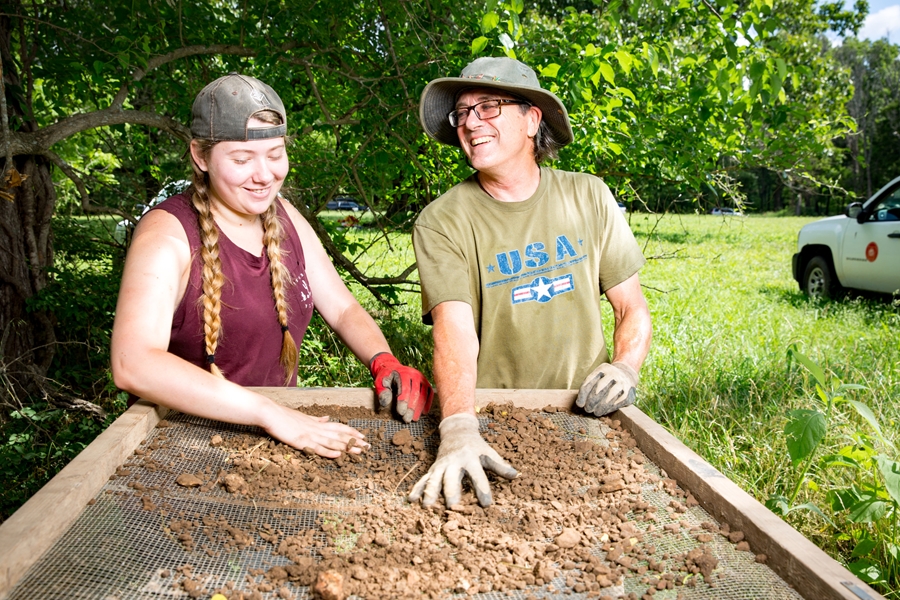The Arkansas Archeological Field School offers students an opportunity to practice the skills and methods of real archeological field work. Researchers teach archeological mapping, excavation techniques, and artifact identification and processing, which prepares the artifacts for future use, be it in a museum or classroom.
The Department of Anthropology, of which archeology is a program, has conducted field schools off and on since the 1960s, said Jamie Brandon, associate research professor and station archeologist with the Arkansas Archeological Survey. Much of the decision to hold a field school depends on timing and whether a project is available.
As in 2001, 2005 and 2010, Brandon leads this year's dig, a month-long program focusing on Leetown, a former hamlet at the western edge of Pea Ridge National Military Park in Benton County. Like the area around the more renown Elkhorn Tavern two miles to the east, Leetown played a significant role during the two-day Battle of Pea Ridge. One of the battle's major engagements occurred near the hamlet, and historians think that several, if not all, of its structures - estimated to be between six and 12 - served as field hospitals. (Decorated, and some say infamous, Confederate General Ben McCulloch was shot and killed by a Union sharpshooter at the Leetown battleground.) Unlike the reconstructed Elkhorn Tavern, however, Leetown is invisible, buried underground.
But not for long. The Archeological Survey has begun a four-year collaboration with Pea Ridge National Military Park and the Midwest Archeological Center of the National Park Service to rediscover Leetown. Researchers hope to uncover the remains of structures, important artifacts, an adjacent cemetery and a road that was likely used by soldiers, in addition to the hamlet's residents. Their work will help park officials expand services and provide greater interpretation.
"Our interest and active participation in this dig is critical," says park superintendent Kevin Eads, "because right now there's so much about this area of the park that's of unknown value to the public. So obviously we're excited about the project. The archeologists' work will help the Park Service develop more accurate maps and interpretation, and this will allow us to set the stage for life before and after the battle."
This year's archeological field school is part of the long-term Leetown project. To read more about the archeologists' experience at Leetown, visit Research Frontiers, the home of research news at the University of Arkansas.
Topics
Contacts
Matt, McGowan
University Relations
479-575-4246,
